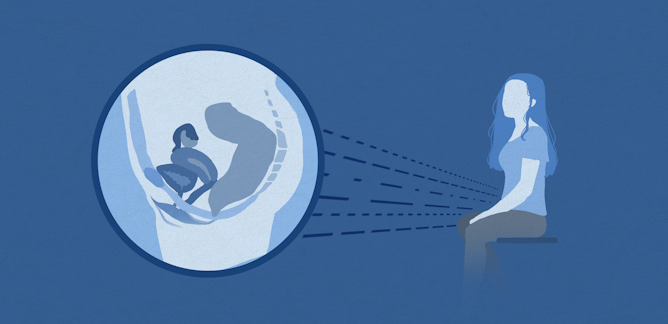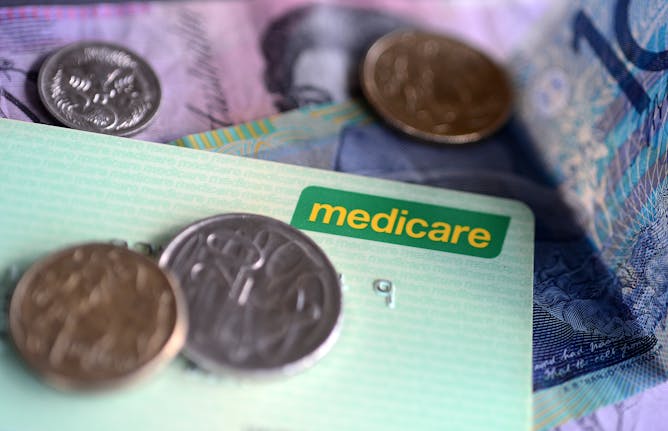|
|
|
Editor's note
|
|
This Monday, April 1, we’re set for the annual changes to private health insurance. More than half of Australians have private health insurance, and are faced with a dreaded rise in premiums each year. But Peter Sivey and Terence Cheng tell us this year’s rise of 3.25% is pretty reasonable. While increases in premiums continue to outpace wage growth, we’re using our health insurance more, and the prices of health care are rising. So we should
expect to have to pay more.
But that doesn’t make it any easier on our pockets. And as well as being expensive, choosing a policy is confusing. Among several changes coming into effect on Monday, we will now have a new tiered system to try and help us navigate these decisions. (The bad news: it’s not likely to make things a whole lot clearer.)
|
Phoebe Roth
Assistant Editor, Health+Medicine
|

|
|
|
|

This year’s premium increase is small in comparison to previous years – but it still outweighs wage inflation.
From shutterstock.com
Peter Sivey, RMIT University; Terence Cheng, University of Adelaide
A raft of changes to private health insurance in Australia will come into effect on April 1. Here's what you need to know.
|
From the archives: private health insurance
|

When you’re admitted to a public hospital, they’ll want to know if you have private health insurance.
From shutterstock.com
Sophie Lewis, UNSW; Karen Willis, La Trobe University; Rebecca E. Olson, The University of Queensland
When you enter a public hospital, you are likely to be asked if you have private health insurance, and if you want to use it. This is what you need to consider.
|

Some people choose private health insurance for shorter wait times.
l i g h t p o e t/Shutterstock
Sophie Lewis, UNSW; Karen Willis, La Trobe University
Private health insurance premiums will rise from April 1, leaving consumers wondering if they should give it up or downgrade to save money.
|
Expert answers to serious, weird and wacky questions
|

Sasha Petrova, The Conversation
People under 18 can leave school, get a job, drive a car and pay taxes. Should they be allowed to vote too?
| |

Melissa Kang, University of Technology Sydney
Doing kegel exercises is actually very beneficial for your pelvic floor muscles. Don't know how to do them? We have you covered.
|

Noel Hanna, UNSW
When a sound is made, it spreads. And when it hits a hard surface that is far away, it bounces back and comes back to where the sound was made. That's what we call an echo.
| |

Chris Blenkinsopp, University of Bath
It's good to know how currents are formed in the ocean, as they can be quite dangerous!
|
|
|
Top picks from the week
|

Green vegetables, nuts and berries are among the foods that could improve our brain function.
From shutterstock.com
Margaret Morris, UNSW; Michael Kendig, UNSW
We pick healthy foods to look after our bodies, but research shows certain healthy choices can also benefit our brains.
|

It’s often hard to comprehend complicated medical information from your doctor – particularly if you’ve just received bad news.
From shutterstock.com
Amelia Hyatt, Peter MacCallum Cancer Centre; Ruby Lipson-Smith, Peter MacCallum Cancer Centre
It's not unusual to be fed a whole lot of complex medical information by your doctor. Having an audio recording of the consultation that you can play later can help you take it in.
|

The freeze means some medical professionals are reimbursed for delivering services at the same rate today as they were in 2014.
Dave Hunt/AAP
Helen Dickinson, UNSW
While the freeze has been blamed for rising out-of-pocket costs for consumers, bulk billing rates haven't fallen.
|
|
|
| |
Featured jobs
|

|
Monash University — Caulfield East, Victoria
|

|
University of Melbourne — Parkville, Victoria
|

|
University of Western Australia — Perth, Western Australia
|

|
RMIT University — Melbourne, Victoria
|
|
|
|
| |
| |
| |

|
| |
| |
| |
Featured events
|

|
UTS Building 5C, 1 Quay St, Haymarket, New South Wales, 2000, Australia — University of Technology Sydney
|

|
RACV City Club 501 Bourke Street , Melbourne , Victoria, 3000, Australia — Monash University
|

|
Curtin St Georges Terrace, 137 St Georges Terrace, Perth, Western Australia, 6000, Australia — Curtin University
|

|
Deakin Downtown, 727 Collins Street, Melbourne, Victoria, 3008, Australia — Deakin University
|
|
|
|
| |
| |
| |
| |
| |
|
|
|
|
|
|
|